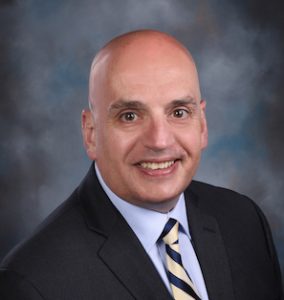
On Tuesday, April 28, ACEP hosted a successful and first-of-its kind, “Virtual Hill Day”. This virtual event provided ACEP physicians the opportunity to talk with members of Congress (MOCs) and Capitol Hill staffers about the personal, professional, and financial challenges that emergency physicians are facing during the COVID-19 pandemic. These would normally have been in-person visits as part of the annual ACEP Leadership & Advocacy Conference (LAC). Admittedly not as much fun as being in Washington, DC together, the virtual Hill visits were incredibly valuable as we shared our first-hand, front-line experiences in responding to the COVID-19 pandemic.
Explore This Issue
ACEP Now: Vol 39 – No 06 – June 2020The ACEP DC team demonstrated creativity and leadership here. While many other professional medical societies cancelled their annual advocacy events, ACEP knows that our members must tell the stories of how COVID-19 has affected them and our patients.
The success of this program is evident in the numbers. A total of 474 ACEP members from 45 states participated in 306 virtual Hill visits. These numbers are not far off from our usual in-person meetings. More impressively the percentage of visits with MOCs was almost 50 percent, higher than ever! A benefit of the virtual format was that, since we weren’t scurrying all over the Capitol for meetings, 429 attendees had time to provide feedback and comments, allowing the ACEP Washington, D.C., staff to follow up with congressional offices and refine the College’s advocacy messaging and strategy.
To focus our message, ACEP developed talking points and “asks” for the visits. This year, instead of the traditional issue briefing on the morning of the Hill visits, the briefing was virtual, held the Thursday before Hill Day. This head start gave chapters the opportunity to plan, making the most of the 30-minute visits. Not surprisingly, the issues and topics this year were all coronavirus related and included:
- Personal protective equipment (PPE)
- Hazard and hero pay
- Liability protection and immunity
- Coverage: protection of the emergency care safety net
The experiences of “hot spots” and “ghost town” emergency departments and how the pandemic has affected our practices in vastly different ways were shared with MOCs. Explaining that having enough PPE is not equivalent to having appropriate PPE shocked many members who were under the false impression, based upon messaging from government officials, that PPE shortages are no longer a problem. We shared our concerns about the risks that we are taking in potentially infecting ourselves, our loved ones, and other patients by having to use the same respirator for an entire shift or longer.
We discussed the needs of emergency physicians and our respective group practices. We described how the decrease in ED volumes was threatening the viability of staffing models. One key point emphasized was that a significant majority of emergency physicians are not directly employed by hospitals. While it is important for hospitals to receive financial support from efforts such as the CARES Act, direct and urgent financial help is needed for emergency physicians and our practices.
Overall, the Virtual Hill Day was a success. Telling our stories directly to MOCs and Hill staff is invaluable. It helps them understand who we are and what we do. Sharing not just the statistics, but the personal experience of emergently intubating a patient with COVID-19 in respiratory distress makes the pandemic more real for MOCs. Sharing how that affects us as emergency physicians, and more importantly as people, humanizes us.
During these visits, perhaps more than ever, the MOCs and the Hill staffers we met expressed appreciation for what we do every day in caring for the nation. We asked that they channel that appreciation by supporting emergency physicians in their work in Congress. We asked that they advocate for direct, urgent, and significant financial support of the specialty of emergency medicine with the Trump administration and leadership of the Department of Health and Human Services so that we can continue to be the nation’s health care safety net on a 24-7-365 basis throughout and after the pandemic.
For those of us who participated in the Virtual Hill Day, we were not just telling our stories, but the stories of all emergency physicians who are the front line of the health care response to this pandemic. I would encourage all of you to find your advocacy voice and join us next year at the Leadership & Advocacy Conference. Or better yet, don’t wait until next year get involved. Join the 911 Network to stay updated and informed on federal and state issues. Contribute to NEMPAC now, as well, and help ACEP amplify your voice on the issues that matter most to emergency medicine.
Pages: 1 2 3 | Multi-Page






No Responses to “ACEP Virtual Day on the Hill: Advocating From the Front Line”